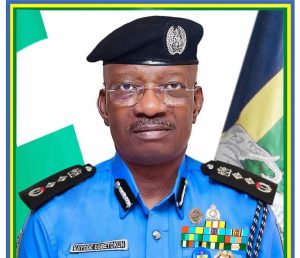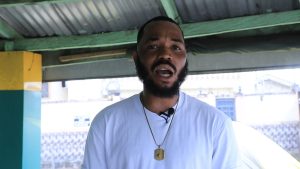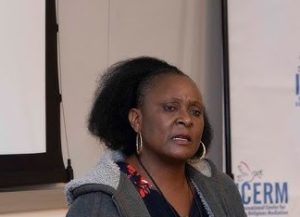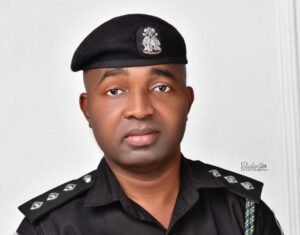By Ugonna Agu, Emma Nwazue & Alfred Ajayi
In this Report, Ugonna Agu, Emma Nwazue & Alfred Ajayi set out to uncover the stories behind the rising number of missing persons in the South-East. What they discovered is an intricate nexus of insecurity, unethical policing methods, poor record keeping and the needed closure for distressed families of victims.
Nnaawa Kamalu, the fourth child and first son in a family of seven was loved by all who hoped to see him become a successful man someday in life. On September 3, 2022, Nnaawa resumed the day’s work without any premonition of the calamity ahead. Before the day ended, he went missing without any trace up till today.
Nnaawa, 33 at the time, lived in Asaga, Ohafia Local Government Area (LGA) of Abia State, but had gone on a visit to Ebem, his maternal side.
“Nnaawa went to search for daily bread and didn’t return,” said his sister, Gloria (not her real name).
“They searched everywhere for him from my paternal side in Asaga to our maternal side, Ebem. He was not found. His lines were switched off,” the heartbroken sister recalled.
Expectedly, the parents who reside in Delta State, were shattered by the news of his disappearance. They returned to Abia to join the search for their loved son.
“Back to Ohafia with his pictures, my parents joined others to search all the bushes and forests around to neighbouring villages, to know avail.
“The case was reported to the police station in Ebem with his picture. But all to no avail. We did not see his dead body and we haven’t seen him, neither did we hear anything from the police.”
The family suspected their son might have been a victim of indiscriminate military operation in the community.
“At that time, the army people were harassing youths in the community. A guy who was captured but lucky to escape, with broken arms, said they shot at him. I don’t know how he was not gunned down.
“Some of the arrested persons stayed with the army people for seven to nine months before they were released. It was after the community women protested that they released one or two of those in their captivity.”
It is now two years since Nnaawa went missing and the vacuum his absence created remains unfilled just as the pains are still fresh.
“Seven to eight months after the incident, his line rang but no one picked it. Afterwards, it went off. Months again, it rang, but no one picked up. The line went off till date. We are still in shock. But, we strongly hope to see him again,” the sister said amidst sobs.

As the Kamalu family hopes and earnestly prays for the safe return of their son, the family of a former VIO personnel popularly called Mr Parkwell also shares the same prayer.
Parkwell, a former VIO officer, disappeared around the same time as Nnaawa and has not been found up till date.
“He used the same type of bike like him. I don’t know if they got the bikes from the same source. People call him Mr Parkwell because as a former VIO officer, they will always say ‘Park well’ while stopping vehicles. That’s how he got the name.”
12 years, no trace
As the Kamalu family hopes for a good closure to his disappearance mystery, the family of Reginald Iheoma from Nkwere LGA of Imo State keeps hoping to welcome home their beloved father, who got missing since 2012.
“It was sometime in August 2012; we were on our way to the village at Nkwere LGA for an event when a black SUV double-crossed our vehicle somewhere around Ikeduru LGA. Before we knew what was happening, three hefty gun-bearing men in bullet proof vests alighted from the car,” Blessing Iheoma fought back her tears as she recounted the last moment with her husband before his disappearance.
“Initially, we thought they were police officers, but when my husband realised they were not, he asked me to run away. I did, not knowing the direction to take, amidst sporadic shootings.”
Fifteen minutes after, Blessing Iheoma emerged from her hiding to discover that her husband had been whisked away.
“I met our car deserted. Some people around told me that the men put him in the trunk of their vehicle and drove off, without taking anything with them, not even his phones. Then, I knew he had been kidnapped.”
From minutes to hours, hours to days, days leading to months. It is now 12 years and Iheoma still hopes to see her husband.
Having waited fruitlessly for his return and as a way of finding closure, Iheoma buried her husband but the vacuum of his disappearance remains unfilled. Although now living in the diaspora, life without Reginald has been hellish for the mother of five.
“He left me striving to raise their 5 children alone. It has not been easy at all.”
Esther Nmeka still in shock
Esther Nmeka is still in shock as she wraps her head to unravel the disappearance of her husband, Onyebuchi Nmeka, who left home in August 2024 with a promise to return hours later. Onyebuhi had travelled out of Owerri, Imo State, to attend to a quick assignment in Awka, Anambra State. His plan was return before sunset to be able to attend a church meeting. It is now three months, Onyebuchi is not found and his whereabouts uncertain.
In her confused mood, his wife, Esther, recalled her last moments and conversations with her husband, who has since been officially declared missing.
“He sent me a message while on the way, that their vehicle spoilt, though he did not say the exact location.
“Later, he sent another message that two buses have come to carry them, that the passengers have been divided into two for convenience. He later sent another message, that the bus had been carrying them around unknown direction, different from the route to Awka,” Mrs. Nmeka narrated.
“After a while, I got a call from him; his voice was shivering; signalling that something sinister must have happened. My husband said the people said they were kidnappers, and that they should call their family members for ransom payment. That was the last I heard,” the distraught woman said.
No-one has called since then for further discussion about ransom.
“Since then, his phone went off and I have not been able to communicate with him. Besides, no one has called me for ransom or any form of negotiation.”
Two months on, Nmeka hopes to see her husband again someday.
Insecurity worsening the situation
The issue of missing persons is a growing concern across the country exacerbated by wide-spread insecurity. Over the years, the number of victims keeps increasing, though some of them are either found dead or alive, after payment of huge ransom, while some others are never seen again. In any case, victims’ families are left in a state of anguish and uncertainty.
In November 2023, security forces in Abia State, during a raid, recovered 70 decomposing corpses with numerous skeletons from a forest around the Lokpanta Cattle Market in the Umunneochi LGA. It is strongly believed that some of those declared missing by their families may be among the victims.
“Those headless bodies were people who told their loved ones goodbyes and never came back. I don’t think their identities were ever established,” John Maduagwu, a journalist and commentator on public affairs, said.
“Those people will ever be classified as missing persons. Some of them were without heads. If the heads were intact and the corpses were still fresh, it would have been easier to identify them.”
Security operatives also culpable
From Abia to Anambra and Imo, dead bodies of persons have been discovered, some of them too decomposed to be identified. While criminal gangs are the chief culprits, fingers are also pointing at security agencies, especially the police and other informal security outfits. Just like the Kamalu family is blaming the disappearance of their son on the military, respondents argued that there are countless incidents to establish the claims against security operatives.

Section 43 of the 2020 Police Act mandates the police to inform the arrested suspect of the allegation against him in the language he understands. Its section 35(3) equally tasks the police with informing the next of kin or relative of the suspect about his or her arrest without any financial obligation on the suspect.
However, this, according to Omotola Adeleke a broadcast journalist in Umuahia, is not always complied with as security agencies most often carry out arrest without proper procedures.
“It’s alarming that our security agencies, especially the police get themselves involved in this type of kidnapping. Some persons have reported many cases to this office over and over again. When you report such things to the police especially when their officers are suspected, their reaction is not always encouraging. It is like you’re lying about it. At the end, these persons are not found.
“An old man of around 70 to 80 years came to our station crying profusely. He said that some policemen came and whisked their first and only son away one night as they were getting ready for dinner. There was no arrest warrant. They didn’t tell them the young man’s offence. That happened in November 2020. The man showed me the boy’s picture, an architect. Since 2020, he has not been found.
“Let’s even assume that there is a criminal allegation against him. You will tell the parents what happened, tell them where you are taking their son to so they can follow the process. I am heart-broken because news like this comes up every week. Sometimes, these things go unreported.
“We went to the police station and it seems they don’t even care. It is getting to six years and no one talks about it. Some of these cases we bring them on air and talk about them. There are times we even invite the PPRO, most of the time, they promise to investigate the matter. Weeks after, you are getting no response from them. You keep calling and calling and it gets to a point they no longer pick your calls.

In his view, a public affairs analyst, Lawrence Ifedigbo, stated: “They apprehend someone without proper procedure, and if the person is new, he doesn’t know where he’s being taken to. Such a person is already missing because for a few months, he might not be seen.
“Some persons have been in police detention for months and sometimes they don’t even allow them to make calls to their loved ones about their whereabouts. They’ll tell you, no, you’re a suspect. Until such persons are seen again, they are declared missing. Sometimes, the case had been registered with the police and several months after, the person reappears.”
Ifedigbo regretted that the police brutality and illegality which led to the ENDSARS protest have not been addressed.
“If you look at 2020 ENDSARS protest, you will find out that some persons died in the custody of so-called SARS that made the youths to protest. There are allegations that SARS operatives were affiliated to some ritualists. You die there, they will dispose your body. Issues that led to ENDSARS protest have not stopped. What they did was just a change of nomenclature of that particular body.”
A security expert, Chris Udeze in Anambra State, buttressed Ifedigbo’s position: “The internet is replete with such incidents including security agents actually involved in selling of arms to kidnappers or policemen providing the information that led to the kidnapping of some persons.
“Such arbitrariness cuts across both the formal and informal security architecture. It is even more minimized with formal security agencies because there is a proper scrutinization process during employment. The informal security sector is now an all-comers affair especially here in Anambra.”
He also conceded that disappearance in the course of being arrested and detention by security operatives is not new to the country.
“A young man in Nkpor my home town, was arrested by the Anti-Tout Squad and taken to their Onitsha office. I went to establish a case against him because he was already being investigated for another crime at the Ogidi police station.
“But, on getting there, somebody told me in confidence that he had confessed to some very terrible crime and had been taken away to a destination that they were not willing to mention. The young man is yet to be seen. I believe they must have handed him over either to the police or any other agency.
“Where there are empirical evidences of such person’s involvement in violent crime, most times, the persons is never heard of again. That goes with both the regular and the informal security agencies,” Udeze said.
This contravenes the provision of the 1999 constitution which states in section 36 (5) that every person who is charged with a criminal offence shall be presumed to be innocent until he is proved guilty.
“When the person has not undergone due and diligent investigation and prosecution, to just conclude that the person is guilty and to summarily deal with him, is not an ideal situation,” Udeze insisted.
“However, we have seen situations where people were arrested, released, re-arrested. They were charged to court and were granted bail. So, they went back to the community to keep terrorising the people. Most security agencies don’t have the patience for such a situation. That’s why you have such cases. But, it is not ideal. Let the wheel of justice take its course in all situations,” Udeze advised.
No accurate records of incidents
According to the International Committee of the Red Cross (ICRC) over 25,000 people in Nigeria are registered as missing as of August 2022. This is 1000 higher than the figure released in the previous year. Data from Missing Persons Platform Nigeria indicate that over 50 percent of missing persons in Africa are from Nigeria, while approximately 22,000 cases of missing persons have been recorded since 2018 in Nigeria.
Despite the disturbing trend of insecurity in the region, only Anambra State has a Bureau of Missing Persons established in 2023, domiciled within the State Ministry of Justice, and chaired by the Attorney General and Commissioner for Justice, to document incidents of disappearance of persons.
In its pace-setting role, two officials of the Bureau recently went on a month-long study visit to International Bureau of Missing Persons at The Hague, the Netherlands, where they understudied the agency on documentation, evaluation and human rights of missing persons.

Data from the Anambra Bureau indicate that 78 cases were recorded in 2020, out of which 59 were found while 19 remain not found. The number rose to 106 in 2021. While 64 were found, 42 were still missing. Reported cases were 91 in 2022, out of which 35 were found and reunited with their families, while 66 persons are yet to be found. In 2023, the number surged to 114 out of which only 28 of them were found, while 86 are still to be accounted for.
Its Desk Officer, Mathew Onwuasoanya, said: “Though cases are reported in no particularly structured process, we create contact with relations of missing persons whose case has been reported. People reach us on social media handles or at our office at the state secretariat. We also have communication channels with security agencies especially the police. We help victims’ relations in establishing contact with police to lodge complaint and also put their complaint in the media.”
“The current insecurity in Nigeria is not isolated to South-East region. But it’s natural that cases of disappearance will occur more frequently wherever there’s security lapse or breach,” he said.
The first-ever comprehensive directory of missing persons in Nigeria, known as Missing Persons Register, was created by Enough is Enough (EiE) Nigeria (aka The EiE Project) as a response to daily incidents of disappearance of persons without government records. According to the EiE Project, the register was created as an opportunity for citizens and the government to understand the scale of the issue, the efforts and the lack of it, being made to address it.
The growing incidents of missing persons in the South-East region compels a replication of better versions of the Anambra Bureau structure in Abia, Ebonyi, Enugu and Imo states.
“It is not okay to fold our hands and bemoan the issue. We should rather put machinery in place for reporting and keeping record of cases, while working with relations of missing persons to search for victims,” Anambra Bureau’s Desk Officer advised.
On the awareness creation efforts, the Desk Officer of the bureau in Anambra said, “We do sensitisation campaigns through jingles on radio and other mass media. We publish our physical address on social media. Presently, effort is at advance stage for pasting our banner beyond the state capital to make our presence felt more in all the 21 council areas.
The Desk Officer appealed to other state governments to handle the security twist with the seriousness it deserves.
“Other states should wake up because missing persons are not dead until confirmed. Nigeria may be failing on another front if issues like this are continuously handled with kid gloves,” Onwuasoanya, warned.
Prove your allegation, security agencies react
Police Public Relations Officers in Anambra and Imo States declined comments on the issue. In Anambra, questions were sent to the PPRO, Tochukwu Ikenga, since October 26, 2024 for his reactions to issues raised by some respondents, especially the allegation that security agencies, especially the police, are responsible for some cases of disappearance. After failing to respond to the questions via the WhatsApp as promised, he was called on many occasions. When he picked the call on 4th November, still seeking his response, he promised to respond to the posers, which he never did.

His counterpart in Imo State, Henry Okoye, also declined comments, insisting that the command does not release such a report unless the person gets a directive from the force headquarters Abuja. “The information you are asking for is a very sensitive one, why not inform the force headquarters to direct me to release such sensitive information to you,” Okoye said.
However, the PPRO, Abia State Command, Maureen Chinaka, affirmed that the police is the default agency leading investigations into incidents of disappearance of persons in Nigeria and Abia State command has not been found wanting in that regard. She confirmed that Abia State, though relatively one of the safest in the country, is not shielded from the current security realities in the country.
“My office is directly in charge of issuing press releases on disappearance of persons. So, prompt reporting is valued. Our numbers are out there. If you cannot go to police stations to report, you can call.”
“We have a file for missing persons. However, the information must be accompanied with the picture of the missing person and we’ll declare the person missing. I wouldn’t say that there is a direct desk for missing persons. But, it is part of police duties to attend to complaints of missing persons and to ensure that the victims are found.”

ASP Chinaka spoke of fruitful partnership across various police commands. “We collaborate with other PPROs in other state commands because other commands sometimes rescue victims and if they hail from other states, they reach out to the PPRO in the state. We are also collaborating with members of the public.”
She denied the allegation that the police are responsible for some cases of disappearance.
“All of those things are allegations and he who asserts must prove it. In the criminal justice system, it is law that you provide proof beyond reasonable doubt. Until such an allegation is proven, it’s just a fallacy.
“We earlier this year launched an electronic program to help us coordinate data. But, we have a new commissioner of police, who is settling down. So, perhaps much later, when everything is settled, we will revert to it and we will be able to have this information at our beck and call,” Chinaka said.
It’s a collective fight
Respondents called for collective efforts to reduce incidents. For the PPRO, Abia State Police Command, collaboration is a winning streak.
“We all have a part to play. And if we understand and continue to play that part, we will curb crime and criminality and make the society a safe haven. So, it’s not just the police thing or an exclusive responsibility of the security agencies,” Chinaka advised.
Ifedigbo in Abia State called on security agencies to review their modus operandi to ensure the safety of those in their custodies.
“Police should change the way the work. Arresting people without proper information and notification. What happens to proper investigation before you apprehend? Sometimes, they apprehend the wrong persons.”
“We should do things the way others are doing it. If we say that Nigeria is the giant of Africa, we should be a figure to emulate. So, police should check so that missing persons will be reduced. We are not animals, neither are we criminals.
Chris Udeze urged governments of Abia, Ebonyi, Enugu and Imo states to establish and fund institutions like the one in Anambra State while it is hoped that the one in Anambra will be made better to serve as a perfect model in Nigeria.
“Every state needs a system to generate data on missing persons. They should establish institutions where such cases are professionally handled and reliable data generated without which it will be very difficult to plan and ascertain areas that need attention.”
Udeze equally solicited reforms in the justice system which he argued would help in addressing the issue.
“Some cases are pending in the courts for a very long time. Most times, when a judge learns that the person has been in prison custody for upwards of six months, most times he just goes ahead and grants bail and the case continues. But in most cases, these cases always meet a dead end. The person immediately goes back to the community and starts doing what he has been doing.
“So we need to reform the justice system so that justice is speedily dispensed to avert such a situation because frankly it is frustrating for the security men when the same person keeps on committing crime, putting them on their toes,” Udeze concluded.
For the respondents, the current security situation in the region deserves a rethink of the entire security architecture to evolve a system that can respond adequately to the challenges. But a starting point for them is to establish institutions to handle issues of disappearance in every state of the region.
This Report is part of activities by the Ikenga Media & Cultural Awareness Initiative (IMCAI) under the Collaborative Media Engagement for Development Inclusivity and Accountability Project, a multi-level intervention for media independence and government accountability, managed by the Wole Soyinka Centre for Investigative Journalism (WSCIJ) and supported by MacArthur Foundation.

